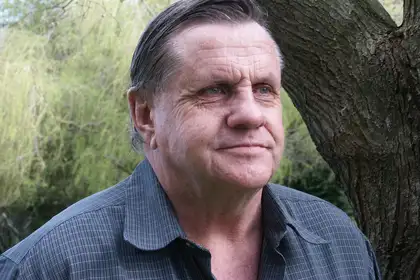
Professor Penny’s lifelong commitment to science began with undergraduate degrees in botany and chemistry at the University of Canterbury, followed by a PhD in Biology at Yale University and postdoctoral research at McMaster University in Canada.
In 1966, he joined Massey University, working within the Department of Plant Biology, School of Biological Sciences, Institute for Molecular BioSciences and Institute of Fundamental Sciences.
As research director, he co-led the Allan Wilson Centre, one of New Zealand’s original Centres of Research Excellence, from 2002 to 2010 alongside Distinguished Professor Mike Hendy. Their collaboration established groundbreaking principles and methods of DNA sequence analysis, significantly advancing understanding of biodiversity, human health and environmental science. To this day, the research network still brings the best and brightest minds to New Zealand every year for an annual biomathematics conference that has run since 1993.
Professor Penny dedicated his career to unravelling biology at its most fundamental level – the genome (DNA). He was internationally recognised for his work on developing mathematical methods to create and scrutinise phylogenetic trees, to understand the origins of life and test Darwin’s Theory of Evolution, which he applied over a number of disciplines including the study of plants, mammals, humans, birds and viruses. His research and developed analysis methods challenged existing theories and resolved controversies relating to evolution, including the human settlement of New Zealand.
Active in science policy, Professor Penny served as president of the New Zealand Association of Scientists, engaging in dialogue with political parties, cabinet ministers and their offices about science funding and awareness.
Professor Penny’s contributions were recognised with numerous prestigious awards. He received the Marsden Medal in 2000 for his outstanding service to science. He was a Fellow of the Royal Society of New Zealand, and in 2004, he was awarded the Rutherford Medal for his distinguished contributions in theoretical biology, molecular evolution and DNA analysis. He also held an honorary life membership with the New Zealand Association of Scientists and was made a Companion of the New Zealand Order of Merit for services to science in 2006. In 2018, he was made a Foreign Associate of the American National Academy of Sciences, one of only three New Zealanders to receive this recognition.
After 40 years with Massey, he was recognised for achieving outstanding international eminence in his field, being named a Distinguished Professor in 2005. He retired in 2017 and was made a Professor Emeritus. Despite this, he was retired in name only, continuing his work in evolutionary studies.
Professor Penny was known for his curiosity and motivating others to work harder and faster to find out more.
Head of School of Food Technology and Natural Sciences Professor Jamie Quinton says he will be deeply missed, but his legacy will continue to inspire and influence the scientific community for generations to come.
“Professor Penny’s ideas were broad and his work multidisciplinary, often controversial but always inspiring. To many of us, he was a mentor and a much-loved advisor with his students spread far and wide. We wish to offer our greatest condolences and care for David’s family and his Massey whānau.”
A celebration of Professor Penny’s life will be held at 1pm on Saturday 27 July at the Refectory in Palmerston North.